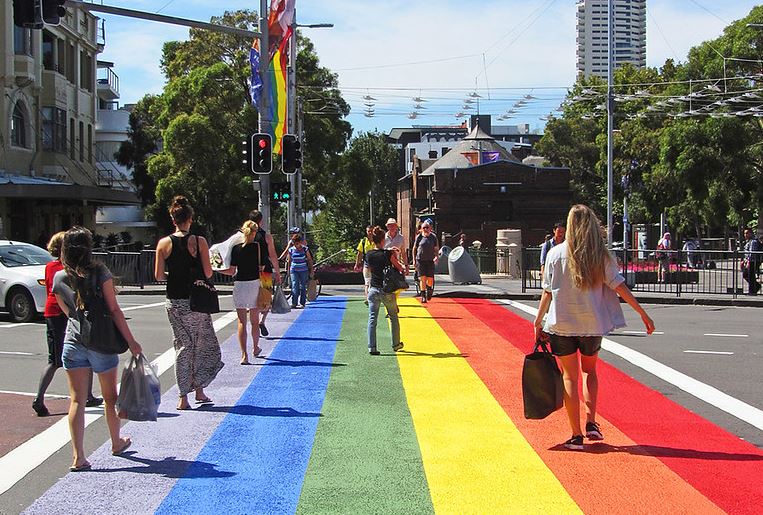Despite intense anti-LGBTQ attacks in several countries, equality is still advancing across Europe, as shown by the annual Rainbow Map and Index by Europe’s leading LGBTQ organisation (ILGA-Europe) published on Thursday.
Whilst public discourse is becoming increasingly polarised and violent, particularly towards trans people, political determination to advance LGBTQ rights is paying off: the largest gains on the map are for countries that introduced legal gender recognition using a self-determination model.
"As powerfully evidenced in this year’s Rainbow Map, the rise of anti-LGBTQ rhetoric from anti-democratic forces, particularly instrumentalising false anti-trans narratives, is being fought back by politicians in Europe who have the courage to make a stand for the fundamental human rights and equality of every citizen," said ILGA-Europe’s Executive Director Evelyne Paradis.
The map – which ranks the various laws and policies for LGBTQ people across 49 European countries – highlights the fact that progress for LGBTQ people is still possible, and it is more important now than ever for leaders to continue fighting against attacks on democracy, she stressed.
Recognising gender identity
"We commend those politicians who have taken the stance that needs to be taken for the good of everyone in our society, and we encourage more to step up to the plate as democracy and human rights are under threat from the far-right across Europe."
Over the past year, bans on intersex genital mutilation are also bringing countries up in the ranking. Spain, for example, jumped up by six places to fourth place with its introduction of legal gender recognition with self-determination, alongside a ban on intersex genital mutilation. Finland moved up into the top ten, also by six places and also with legal gender recognition based on self-determination. Greece, with its ban on intersex genital mutilation, has also moved up by four places.
Gender identity and sex characteristics are now included in anti-discrimination and/or hate crime legislation in Belgium, Iceland and Moldova, moving these countries up in the chart alongside Spain.
These advancements in legislation recognising gender identity mark a major shift forward this year, but progress is also being made elsewhere. Moldova, for example, has jumped up 14 places because sexual orientation and gender identity have been positively included in legislation covering employment, education, provision of goods and services, health, hate crime and hate speech.
Slovenia and Switzerland switched places: both countries introduced same-sex marriage and joint adoption, but Switzerland also allows medically-assisted insemination for couples. Croatia, too, moved up one spot by introducing adoption for same-sex couples.
"Governments, but also other political actors and institutions can and have been making a positive difference this year. A lot of progress relies on the Courts, for instance, at local, national and European level," said Advocacy Director at ILGA-Europe Katrin Hugendubel.
Related News
- 'Protect the Protest': Brussels Pride returns in May to defend LGBTQ rights
- One in three LGBTQ people in Flanders victim of physical violence
Despite Poland remaining the lowest-ranking country in the EU at 43rd place, the country gained points in the index this year because the courts ruled that no surgical interventions were needed for legal gender recognition. The equality body also extended its work to include intersex people.
"In a very hostile global climate, we are seeing different stakeholders coming together and weighing in more actively for LGBTQ rights, which is crucial to counter the pushback," she said.
That pushback can also be seen in the challenge to freedom of assembly amid the rise of anti-democratic forces. Markedly, Turkey remains one of the lowest-ranking European countries for LGBTQ rights after another year of crack-downs on Pride gatherings.
Serbia also went down three places after hosting a seriously compromised EuroPride march after last-minute attempts by the Serbian President and Minister of the Interior to ban the event.

